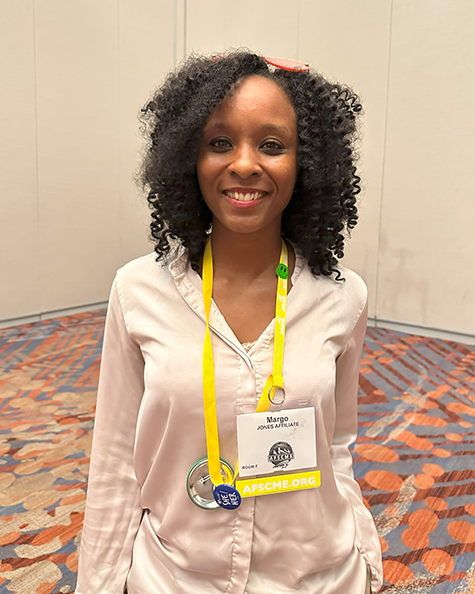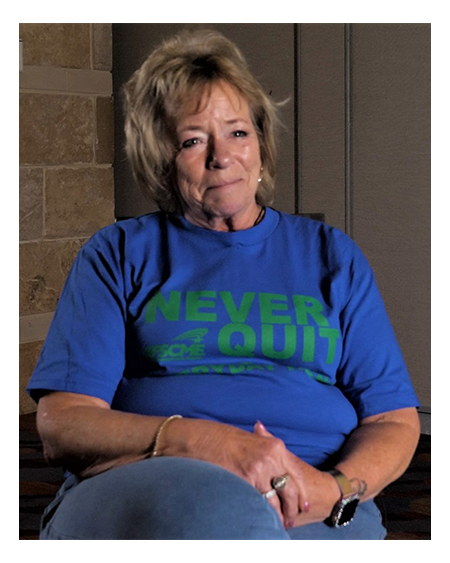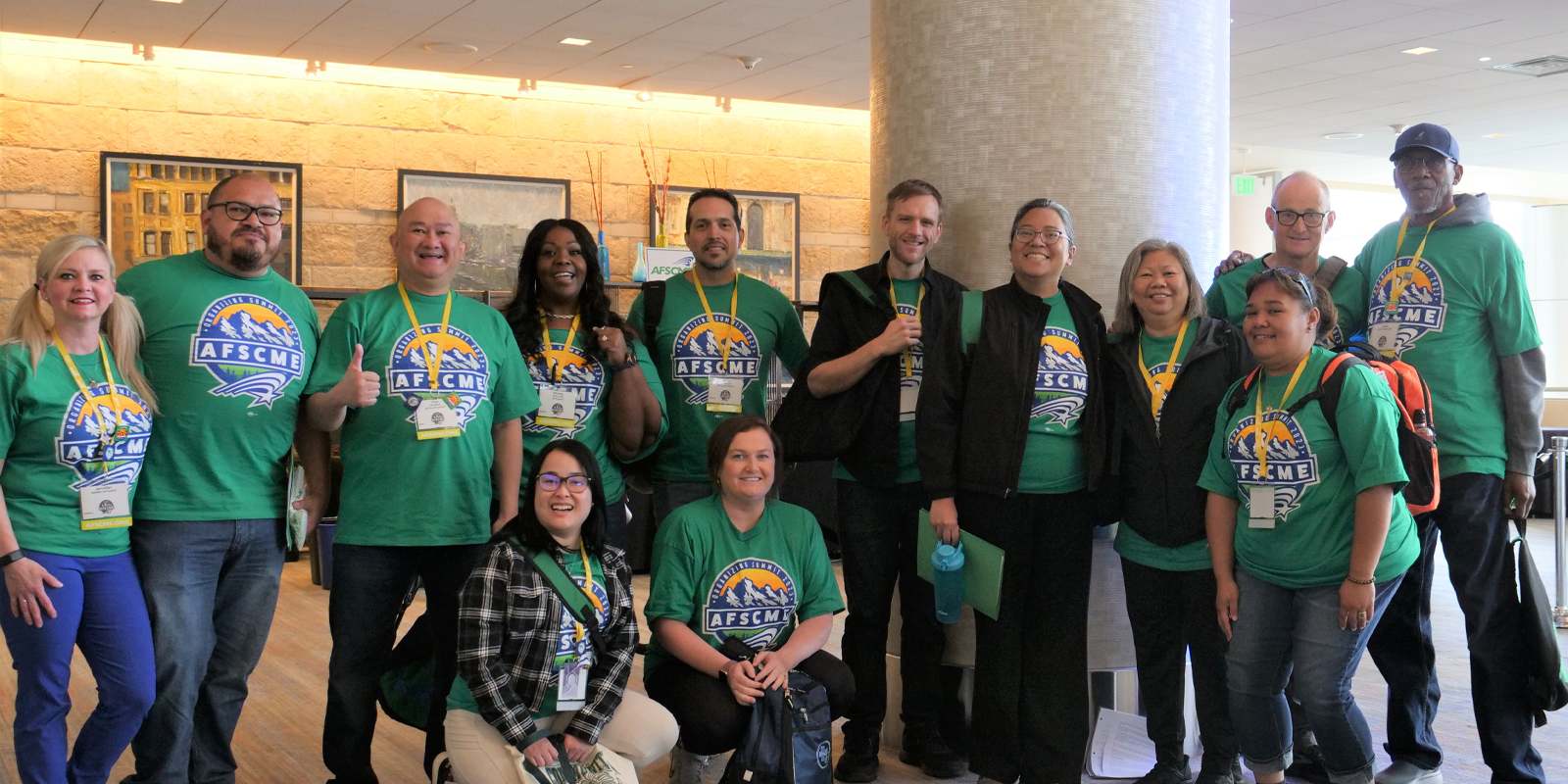
DENVER – They came to the 2023 Organizing Summit in Colorado with the same goal: to expand their union.
A total of 225 volunteer member organizers gathered this month in the Mile-High City to sign up new AFSCME members and learn the latest organizing techniques. They each came with their own reasons for wanting to see their union flourish.
Some were activists with decades of organizing experience under their belts, who know firsthand that organizing is the lifeblood of union power.
For others, though, the VMO summit was their maiden voyage, leaving them excited to return home and use the techniques they learned over the weekend.
Seeking community
For Margo Jones, an office assistant with Connecticut’s Department of Revenue Services and a member of Local 704 (Council 4), the VMO summit provided a sense of community.
“I wanted to learn how to be a better organizer for my local,” said Jones, a first-time VMO. “We have about 603 members. Sometimes it’s tough reaching out to them and getting them organized. Getting the opportunity to see how to build a union from the ground up is something I don’t think we get often. It’s a community experience.”
While Jones said she was apprehensive about knocking on doors in Colorado, the final home visit of the day proved she’d made the right decision in coming to the summit.
She befriended a woman named Mary, who welcomed Jones into her home. They had a long conversation in which Jones learned Mary was already involved in her community. Jones explained how being an AFSCME member is just an extension of that spirit of community-building.
“It was challenging at the beginning but it ended on a very positive note,” said Jones.
For others who are considering becoming VMOs, Jones had this advice: “Come open-minded, optimistic and excited. Think of it like this is your community. These are your people.”
A 10-time retiree VMO, driven to organize by ACT 10
“Pennsylvania Chapter 13 Retiree Kathy Griffiths, a former nurse from Council 13, remembers what ignited her desire to become a VMO. It was when former Wisconsin Gov. Scott Walker gutted collective bargaining for public employees in that state through ACT 10.
“I remember walking up in the morning of February 2011 and seeing what [Walker] had done to union members out there and how devastating that had to be. I made up my mind that if I didn’t get up and start helping, that could easily happen in Pennsylvania,” Griffiths said.

Since then, Griffiths has drawn on her career as a nurse organizing new members.
“Being a nurse is helping people. As a nurse you’re helping them with physical and mental health issues,” she said. “But [organizing] is impacting people’s lives personally, financially; in their family, in their workplace – because it impacts every part of their lives.”
And Griffiths shares her experiences of the union difference – having been both a union-represented nurse and having had jobs without a union.
“One of the stark differences,” explained Griffiths, “is the pay scale. Without a union, you’re at the mercy of whatever the employer wants to give you. Whereas with a union, you have a collective bargaining agreement, and it’s already put in there as to what type of pay raise you will get.”
Belonging to a union, Griffiths says, “Just makes everything better. If you have issues at work, if you go one-on-one with your boss, and you don’t have a union, you really don’t have that much backing behind you. However, as an AFSCME member, it’s like having 1.4 million people walking in that room with you.”
That’s why, she says, “organizing is the hope of the union. We have to keep going, making this great union much larger.”
